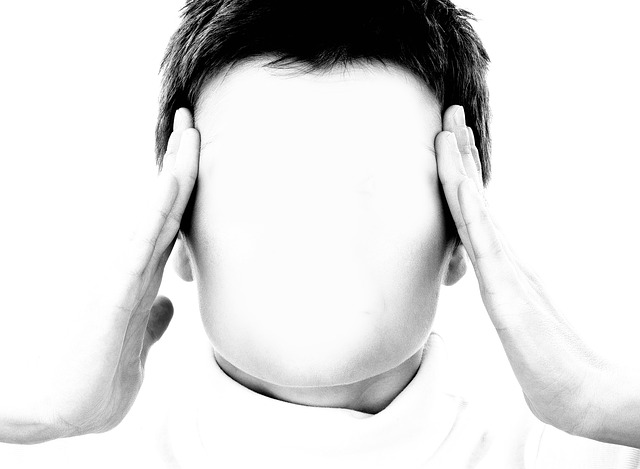I am not going to pretend I am this confident personality that always has everything under control. No, on the contrary, I tend to get nervous quite a lot. The problem exists partially because I was brought up this way, and partially because I have caused it to myself. Instead of learning to control my fear, throughout most of my life I have been trying to avoid it. Those life experiences that could have served to make me more confident, I decided to run away from, thereby putting myself under more pressure and falling deeper into the anxiety hole. And even though my story is full of ups and down, the past few years have become exceptional, and have allowed me to develop myself greater than ever. As a result, I have been able to minimize anxiety to the bare minimum, at least in comparison to what it used to be. Those of you that want to find the answer to how to stop worrying from daily small and big problems, please stay with me for a little longer. I will do my best to share with you the best of what I have learned.
1. How to Stop Worrying – understanding the root cause
To begin with, you must understand that fear is normal, but only an extent. Fear allows us to avoid situations where we can get harmed or hurt. And while that is good, fear and axiety all the time does not feel good nor it is the way it should be. In fact, fear of something without rationality often turns into a phobia, such as ergophobia – fear of work, or hippopotomonstrosesquipedaliophobia – the fear of long words. 🙂
But I don’t really want to talk about phobias here. I want to talk about anxiety, nervousness and how to stop worrying. While nervousness sounds a lot better than a phobia, when it affects you all the time, life becomes difficult. You may be nervous when you are meeting a new person, nervous when going somewhere new, terrified when giving a presentation, nervous while waiting to hear news from a work college the next day, nervous when an unknown phone number calls you, and even nervous because you are afraid to get too nervous. All of these can cause anxiety to the extent that you feel your heart breaking through your chest bone like an Alien from the 1979 Ridley Scott movie!
Now, coming back to understand the root cause of worries. The first time when I finally was able to lessen it, was the time when I first deeply analyzed my problem. I thought about how in my family my father always got and gets worried from the smallest things, and that has always made me anxious as well. Unfortunately, that behavior was passed on to me, and today lot of my worries exist because that is what I saw and felt throughout my childhood. When I finally understood this, it became clear to me that I should spend more time reconditioning my mind and being aware of the ways I think.

Therefore, if you feel that your worrying trait is something that you may have “inherited” from your parents, the first thing you should do is acknowledge this. Once you are aware of that, it will be much easier to battle it. Next time you worry, you can remind yourself that your anxiety may have something to do with your personality, and not the seriousness of the problem itself.
2. How to stop worrying – stop drinking coffee and energy drinks
Caffeine is consumed in extremely large quantities all over the world. Because it comes in a variety of different drinks, such as Macchiato, Cappuccino, Ice Coffee, Espresso, etc., there is probably at least one type that you will happily consume. Plus the fact that it gives us a nice boost and keeps us alert throughout the day, makes it a perfect drink for the typical Westerner.
Unfortunately, coffee has its downsides too. While it helps us get through the day, with time, just like with any drug, you will need more of it to get that same boost. Moreover, caffeine affects your adrenaline glands. When your adrenaline glands get activated, they pump out adrenaline and cortisol (also known as stress hormone), which are hormones that allow you to respond to stressful situations. When having adrenaline in your system, you are able to do things beyond your normal limitations, such as jump higher or run faster, also known as the flight or fight reaction.
So, as you can understand, by drinking coffee, you take your body to a state, as if though you would be in danger or a critical situation. The more caffeine you take, the more stressful it becomes for you. And if you experience anxiety and fear more often than others, you should definitely limit your caffeine intake or drop it altogether.
From my experience, when I drink a cup of coffee, I feel how I become energized, but I also feel how my anxiety grows. Many times I have tried to find the cause of this anxiety, but there was none. It simply is coffee that is artificially making me anxious and worried about basic everyday duties. I get worried about everything and nothing at the same time. So how to stop worrying? – minimize coffee intake and find other less potent alternatives, such as green tea.
3. Can the problem be dealt with?
 Often we worry excessively about things that are outside of our control. For example, a few days ago my flight was delayed, and I was going to miss the last train from the airport to the city center. I already paid for the train, but I knew that in the worst case I could take a taxi. Nevertheless, I sat in the airplane all worried about the fact that I will either have to sprint outside of the plane to catch that train, or I will have to get a cab. I was worried about something that I could in no way control. I was also aware that taking the cab would not be that much of a problem, but I could not stop the anxiety. After some time I finally reminded myself that I am worried just because I am used to being worried in these situations, and that there is no real problem. It worked, and I managed to calm myself down.
Often we worry excessively about things that are outside of our control. For example, a few days ago my flight was delayed, and I was going to miss the last train from the airport to the city center. I already paid for the train, but I knew that in the worst case I could take a taxi. Nevertheless, I sat in the airplane all worried about the fact that I will either have to sprint outside of the plane to catch that train, or I will have to get a cab. I was worried about something that I could in no way control. I was also aware that taking the cab would not be that much of a problem, but I could not stop the anxiety. After some time I finally reminded myself that I am worried just because I am used to being worried in these situations, and that there is no real problem. It worked, and I managed to calm myself down.
So, if you find yourself worrying over some problem, always ask yourself, are you able to solve this worry/problem? If the train is late, are you really able to affect that in any way? You may be late to a meeting, but again, there is nothing you could have done about it if that train never arrived. When you realize that your problem cannot be fixed by you personally, you should definitely have an easier time handling it. As a person that tends to worry constantly about different things, you may notice that the majority of your worries are outside of your reach. Be aware of this, and you will gradually learn to worry less.
4. How to stop worrying – dealing with problems the right way
Sometimes there really are things to worry about. However, there are better ways to go about it, than just replaying the problem in your head over and over, and feeding your fear even more.
If you find yourself worried about something for a long period of time, it is time for you to deal with it. One thing you can do is to sit down, and spend 10-15 minutes focusing on that problem. You have to really focus, asking yourself:
- Why am I worrying (is there even a problem)?
- Can the problem be solved by me?
- What are the possible outcomes of the problem?
- Is worst-case scenario really something terrible?
If you go over these points in your head, you will have analyzed your problem thoroughly. In most cases this is enough to get over it, and to not spend any time worrying about the issue anymore. If you feel that you are still under pressure, you can remind yourself that you have already gone over the problem, and worrying about it further is pointless.
In the case that you have identified a truly serious worst-case scenario, you can focus on how you will act after this issue is handled. Either way, with the given approach you will be able to rationalize your worries and hopefully lessen them.
If you don’t have the time to sit down and think about it right at that moment, you can postpone the worry for later. What I do is I tell myself that now I have no time for it, I will worry about it in an hour, and solve the problem then. This is usually enough for me to forget the problem for a while. Notice that here I am not running away from the problem, but telling myself that I will deal with it, but a little later. This is the reason why this technique works for so many people.
5. How to stop worrying – practice meditation
The opposite of drinking coffee in the context of worries is meditation. At least this is the way I see it.
One very effective way of dealing with anxiety, fear, stress and worry, is to meditate. You don’t have to join a Buddhist school or find a guru to teach you to meditate. Basic meditation will be enough.
Sit down in a dark and quiet room with a straight back, close your eyes, and try not to think about anything – concentrate on your breathing. At first, you will be able to have a clear mind for only about a few seconds, after which your mind will wander off and you will be thinking about your child’s birthday party, whether you have turned the lights off in the garage, what you are going to eat for breakfast and so on. You can meditate at first for only about 5 minutes. The goal isn’t to sit and torture yourself for many hours. It is about doing it at least for a bit, but on a daily basis. Consistency is the key here.
With time you will be able to meditate for longer periods of time, and you will be able to keep you mind clear of thoughts for longer as well. You may be thinking that meditation is not for you, but trust me, for a person that worries too much, meditation is the best medicine and your absolute must.
Like I said, you don’t need to learn any exotic type of meditation, but you can if you want to. You may want to look into Mindfulness meditation, Vipassana, or any other meditation technique out there. Additionally, make sure to check out my post about what celebrities and famous people do to control their fears and worries.
How to stop worrying – conclusion
Are you still in the search of the answer to how to stop worrying? If so, make sure to be aware of your thoughts and to apply the mentioned techniques. Additionally, please understand that there will always be uncertainty with problems at hand, and that is completely normal. The only away you could avoid worrying is by knowing every single situation’s outcome. But we all know that that is not the case in real life. Therefore, acknowledge uncertainty and accept it. Learn to be positive in the most difficult of times, and learn to look with a smile at those problems that aren’t really problems. Don’t treat a problem greater than it is, and life will be a lot easier!
If you liked this post, please leave a comment below and share your story with us. We would greatly appreciate this and would be happy to hear about it!
Subscribe to for more updates on similar topics. It’s easy, and you get a free gift with it! 🙂
Thank you for being with us!
Click here to follow us via E-mail!
Click here to follow us on Facebook!
Click here to follow us on YouTube!
Click here to follow us on Instagram!
Click here to follow us on Twitter!


 Short Motivational Stories of Failure and Success That You Must Know
Short Motivational Stories of Failure and Success That You Must Know
 10 Examples Where the Power of Positive Thinking Kicks Ass!
10 Examples Where the Power of Positive Thinking Kicks Ass!
 15 Best Inspirational Movies That Teach to Never Give Up
15 Best Inspirational Movies That Teach to Never Give Up
 10 Quotes About Why You Should Never Chase Happiness
10 Quotes About Why You Should Never Chase Happiness
 Is Affiliate Marketing Dead? My Income and Opinion
Is Affiliate Marketing Dead? My Income and Opinion

